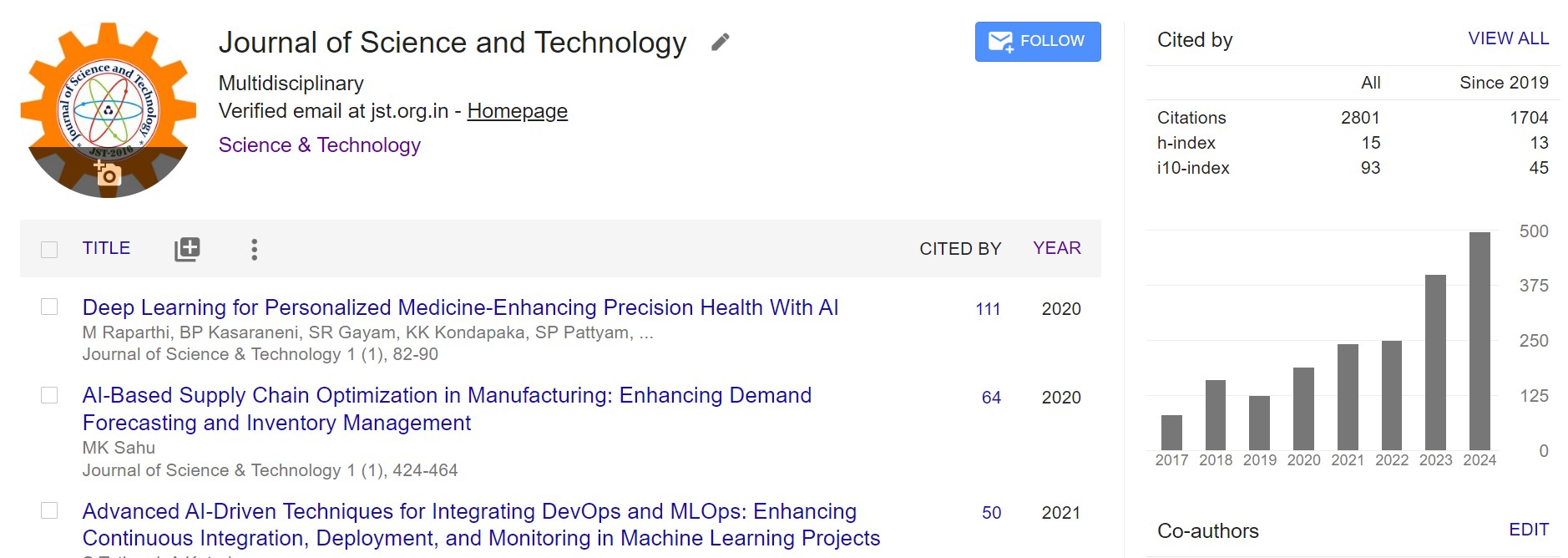Cloud Computing in the Future: Unlocking Potential and Overcoming Hurdles
Keywords:
Cloud Computing,, Computing Service,, Private Clouds, Public Clouds, HybridClouds, Multi-CloudsAbstract
The goal of this paper is to help you learn more about cloud computing and to suggest useful study directions in this
rapidly expanding field. We will also talk about the future benefits of cloud computing and the problems that might
come up before they are solved. In this case, the words "big data," "performance," "cloud computing," and
"architecture" are all used. There are a lot of different design setups for cloud computing, such as the amount of
computers, memory, and nodes. Cloud computing has already changed how we keep, process, and access data, and it
will likely have even bigger effects on the future of technology in the years to come. Cloud computing lets
businesses quickly and easily change how many IT tools they use, without having to buy expensive new gear. In
turn, this can help businesses adapt faster to shifting market situations and customer wants. Moving IT tools to the
cloud can help businesses save money on IT building costs and run more efficiently. Not only that, but cloud
computing lets businesses pay only for the resources they use, instead of having to buy expensive gear and program
rights. Cloud service companies put a lot of money into security and legal measures that can help keep businesses
safe from online dangers and in line with the law. Cloud computing makes it easier and cheaper for businesses to
build and use AI and machine learning apps by giving them a base that can grow as needed. It's possible for a job, an
app, or its data to take up to 20 times longer or cost 10 times more than it should. The ease with which cloud goods
can be changed has caused a paradigm shift. Before, an app was made to work best with a certain server. In the
cloud, on the other hand, the architecture is set up to handle the task. There have been big steps forward in cloud
computing since the days of mainframes and dumb computers, but there are still many more to come. In the future,
IT leaders and the companies they work for will have to deal with more difficult problems in order to stay successful
in a cloud computing world that is always changing. It will also be important to follow all the rules that are already
in place as well as any new rules that may come up in the future. It is likely that the next ten years of cloud
computing will be just as eventful as the last ten. A lot of internet services will move to the cloud, and big businesses
will have a hard time paying for real infrastructure. Businesses use cloud computing a lot to come up with new ideas.
Because it is flexible and easy to use, cloud technology makes it possible for businesses to run in new ways. Users
don't have to be close to their hardware all the time to use this service because it lets them access files and apps
saved in the cloud from anywhere. Because they are stored on a network of shared computers that send data over the
internet, cloud computing lets you join from anywhere. Both individuals and businesses have found cloud computers
to be useful. To be more detailed, the cloud has changed how we live. Overall, cloud computing is likely to remain
an important part of the future of IT. It helps businesses adapt to fast-changing technology by making them more
flexible, efficient, and creative. This is likely to lead to more progress in AI and machine learning over the next few
years.






















